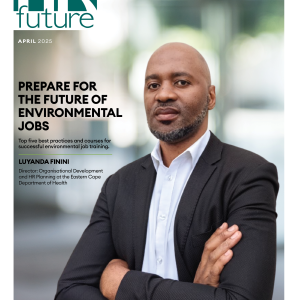After years of guiding others through their career paths, compensation packages, and employee benefits, professionals in human resources often find themselves contemplating the same questions they helped others answer, only now from a personal perspective. Transitioning from a long-standing HR career into retirement is both a rewarding milestone and a complex financial and emotional shift.
HR professionals are well-versed in organizational structures, people management, and strategic planning. Yet, preparing for retirement brings a new kind of challenge: ensuring long-term financial stability while adjusting to a life without the daily demands of managing a workforce. Whether you’ve worked in corporate HR, consulting, or public sector roles, understanding how to make this transition smooth is key to enjoying your post-career life.
Understanding the Financial Shift
Retirement isn’t just a change in routine, it’s a change in cash flow. Where once there were regular paychecks, now there are fixed incomes from pensions, retirement accounts, or investments. HR professionals may have an edge here, as they’ve likely dealt with 401(k) plans, social security, and benefit structures throughout their careers. Still, transitioning from helping others plan to actually living on a retirement income can be sobering.
This is where long-term financial planning becomes critical. A common question many professionals ask is, is 2 million enough to retire comfortably. The answer varies depending on lifestyle, location, health, and expected longevity. For some, $2 million may offer more than enough security. For others with expensive tastes or high medical costs, it might fall short.
Consulting a financial advisor, ideally well before retirement, can help clarify how your assets will support your lifestyle over the coming decades.
Reimagining Your Daily Life
The emotional side of retirement is often underappreciated. HR professionals spend years in high-interaction roles, coaching, negotiating, mediating, and building relationships. Stepping away from that high-engagement environment can feel disorienting, even for those looking forward to retirement.
Replacing professional fulfillment with meaningful personal engagement is important. Many retirees find joy in part-time consulting, volunteering, or mentoring young HR professionals. Others dive into hobbies, travel, or community activities that align with their passions and values.
Creating structure, setting goals, and staying socially connected can make the shift from a full-time career to retirement feel less like an end and more like a new beginning.
Healthcare And Benefits Considerations
Having spent years managing employee benefits, most HR professionals understand how crucial healthcare planning is in retirement. With Medicare eligibility starting at 65, it’s important to bridge the gap if retiring earlier. This might involve COBRA coverage, private insurance, or marketplace plans.
Even after qualifying for Medicare, retirees should consider supplemental coverage, long-term care insurance, and prescription drug plans to cover potential gaps. Early planning ensures fewer surprises and helps maintain access to quality care throughout retirement.
Legacy, Purpose, And Lifelong Learning
For many in HR, the desire to make a positive impact doesn’t disappear with retirement. This is an ideal time to think about legacy, what you want to pass down, not just in terms of assets, but values and knowledge.
Whether it’s writing a book, teaching, or joining a nonprofit board, retirement can be a springboard into a purpose-driven phase of life. The key is remaining intellectually engaged and emotionally fulfilled, which contributes to better mental and physical health in retirement.
The journey from a human resources career to a stable retirement is more than just a financial decision, it’s a personal transformation. By planning wisely, staying active, and aligning your post-career life with your values, you can turn retirement into one of the most enriching chapters of your life.
Allen Brown is a dad of 3 kids and is a keen writer covering a range of topics such as Internet marketing, SEO and more! When not writing, he’s found behind a drum kit.


























